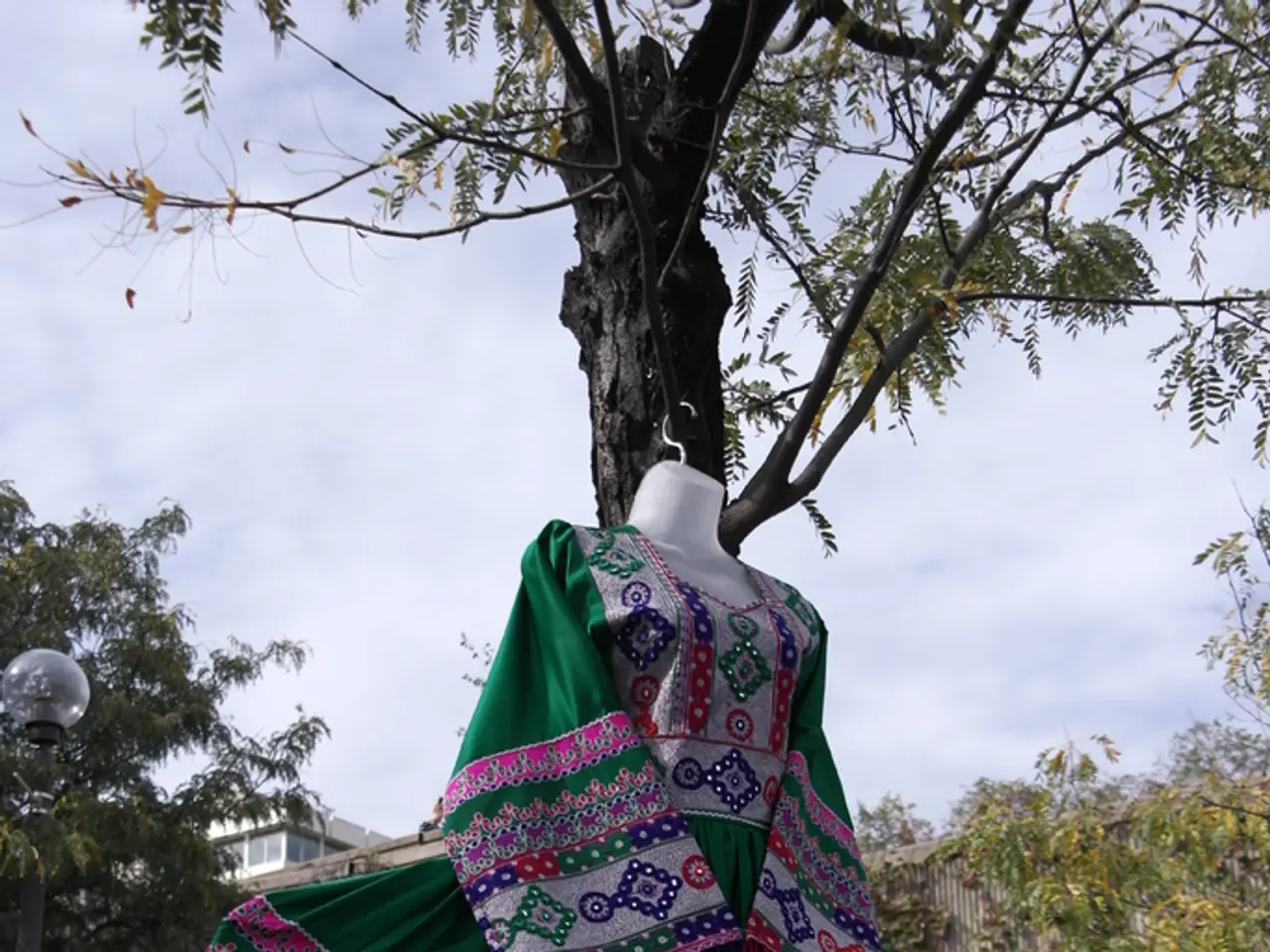Cape Town's Apparel Sector Forges Path to Inclusion and Strength Despite Challenges
In a significant recognition of his leadership, James Vos, Mayoral Committee Member for Economic Growth at the City of Cape Town, has been awarded the Industry Champion Award. The accolade was bestowed upon him at the 20th Annual General Meeting of the Cape Clothing and Textile Cluster (CCTC), a key driver in Cape Town's clothing and textile sector resurgence [2][1].
The award signifies that the shared efforts are delivering real results and encouraging growth, adaptation, and thrival in the sector. South Africa's clothing and textile industry is under pressure from global trade dynamics and the need for local development. However, the CCTC, modelled after successful international examples like Italy and Germany, focuses on collaboration among factories, resource sharing, skills development, and tackling shared obstacles collectively [1].
Key strategies that have supported the sector's growth and resilience include industrial clustering, skills and leadership development, technological and process innovation, inclusive growth and job creation, sustainability and circular economy adoption, and government-industry partnership [2][1].
Industrial clustering encourages manufacturers to cooperate rather than compete, promoting innovation, operational improvements, and shared growth. Skills and leadership development programs like the Team Leaders Programme cultivate internal leadership and workforce solidarity to improve productivity and workplace culture [1].
Technological and process innovation platforms like Origin8 help small manufacturers scale up through marketing and supply chain management tools [1]. Inclusive growth and job creation projects like Project Present reclaim lost production time and increase worker attendance, contributing to broad-based economic inclusion and job boosting [1].
Sustainability and circular economy adoption are essential factors for future competitiveness globally and domestically. South Africa's textile sector is increasingly focusing on circular models to reduce waste and environmental impact [4][3].
The city government aligns policies with sector needs, facilitating investment attraction and supporting manufacturing clusters across other sectors such as marine manufacturing and clean technology. This comprehensive cluster approach helps build a resilient and diversified local economy [2][1].
Despite these advances, the sector faces ongoing challenges such as low-cost imports flooding domestic markets, which pressure local manufacturers to be cost-competitive while maintaining quality and sustainable practices [2].
Looking forward, the CCTC and Cape Town's approach emphasise scaling local production and exports while reducing dependency on imports, advancing sustainability through circular economy principles and indigenous materials, continued investment in skills and leadership to sustain innovation and operational excellence, and leveraging public-private partnerships for inclusive economic development and resilience in global trade [3][1].
James Vos' economic growth programme of action focuses on unlocking investment, preparing the workforce, and ensuring inclusive and sustainable growth. He remains committed to driving growth, creating opportunity, and ensuring that the benefits of economic development reach every community in the city [1].
Cape Town's manufacturers are currently producing over 110 million garments annually within national retail supply chains. Each cluster in Cape Town helps unlock opportunities, drives innovation, and builds a skilled workforce for the future. Collaboration, rather than competition, drives progress in the sector, sparking innovation, strengthening operations, and building resilience [1].
The award received by James Vos reflects a collective effort between government and industry in building a more resilient, competitive, and inclusive economy. He visits clothing factories and meets the people behind the garments, appreciating their craftsmanship, creativity, and dedication [1]. The CCTC has set bold 2030 targets: to localise the production of an additional 30 million garments each year, create 12,500 new direct jobs, and unlock R2 billion in value chain investment [1].
This model has been successfully applied to other sectors in Cape Town, including marine manufacturing, business process outsourcing, and green technology [1]. Despite growth in exports, low-cost imports continue to flood the market, posing challenges to local manufacturers [2]. Nevertheless, the future looks promising as the CCTC and Cape Town continue to forge ahead with their innovative and collaborative approach.
- The manufacturing sector in Cape Town's retail industry, particularly the clothing and textile sector, is undergoing significant growth and resilience, thanks to key drivers like the Cape Clothing and Textile Cluster (CCTC).
- Technological and process innovation, like that provided by Origin8, is playing a crucial role in assisting small manufacturers in the area to scale up by means of marketing and supply chain management tools.
- Sustainability and circular economy adoption are vital factors for future competitiveness in both global and local markets, and the South African textile sector is actively focusing on adopting circular models to reduce waste and environmental impact.
- The city government supports the industry by aligning policies with sector needs, facilitating investment attraction, and establishing manufacturing clusters across various sectors, including marine manufacturing and clean technology.
- Public-private partnerships, such as the one between government and the CCTC, are fundamental to achieving inclusive economic development and resilience in global trade, as demonstrated by the ambitious 2030 goals set by the CCTC: to produce 30 million more locally made garments annually, create 12,500 new jobs, and secure R2 billion in value chain investment.




